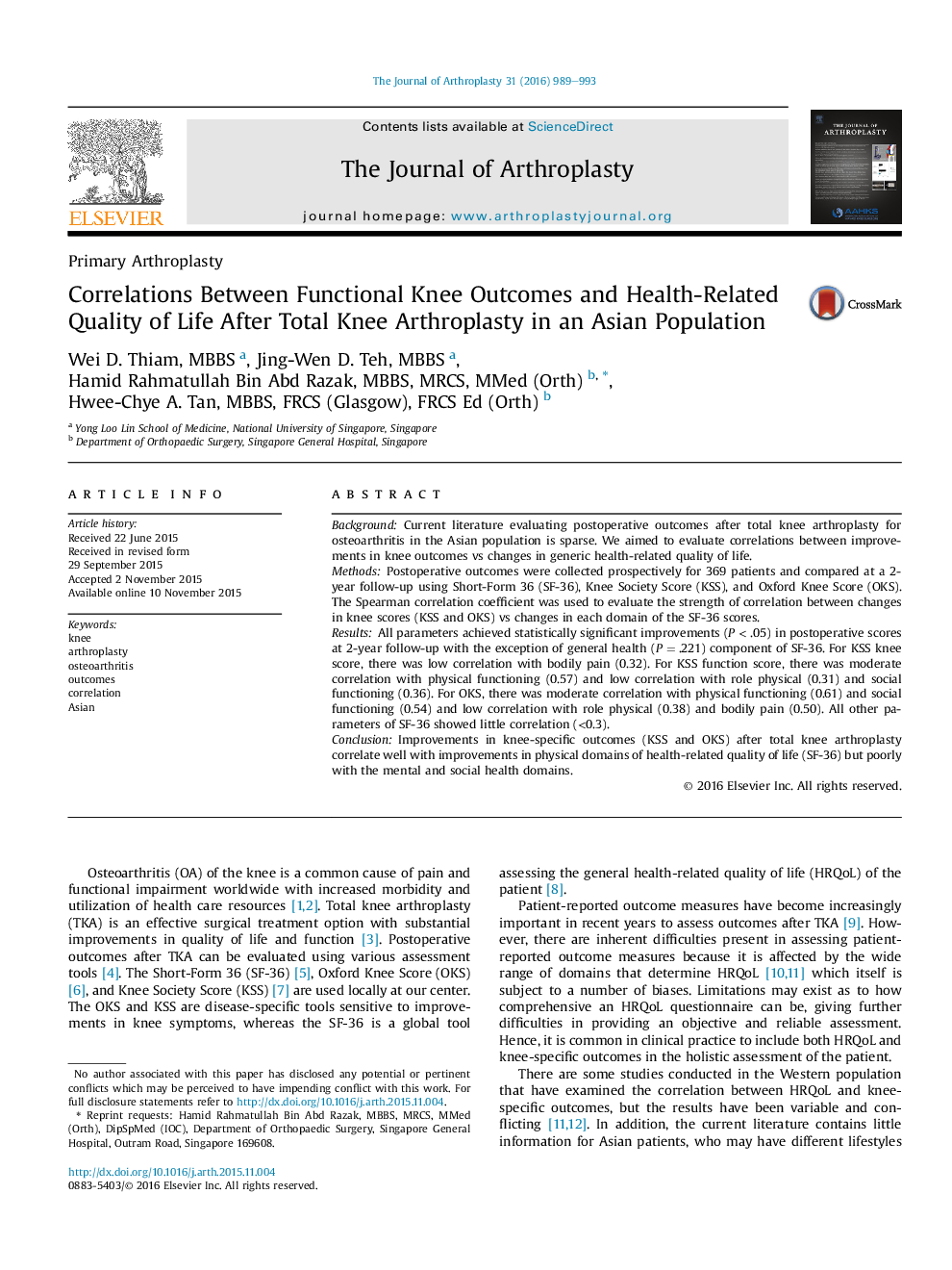| Article ID | Journal | Published Year | Pages | File Type |
|---|---|---|---|---|
| 4060028 | The Journal of Arthroplasty | 2016 | 5 Pages |
BackgroundCurrent literature evaluating postoperative outcomes after total knee arthroplasty for osteoarthritis in the Asian population is sparse. We aimed to evaluate correlations between improvements in knee outcomes vs changes in generic health-related quality of life.MethodsPostoperative outcomes were collected prospectively for 369 patients and compared at a 2-year follow-up using Short-Form 36 (SF-36), Knee Society Score (KSS), and Oxford Knee Score (OKS). The Spearman correlation coefficient was used to evaluate the strength of correlation between changes in knee scores (KSS and OKS) vs changes in each domain of the SF-36 scores.ResultsAll parameters achieved statistically significant improvements (P < .05) in postoperative scores at 2-year follow-up with the exception of general health (P = .221) component of SF-36. For KSS knee score, there was low correlation with bodily pain (0.32). For KSS function score, there was moderate correlation with physical functioning (0.57) and low correlation with role physical (0.31) and social functioning (0.36). For OKS, there was moderate correlation with physical functioning (0.61) and social functioning (0.54) and low correlation with role physical (0.38) and bodily pain (0.50). All other parameters of SF-36 showed little correlation (<0.3).ConclusionImprovements in knee-specific outcomes (KSS and OKS) after total knee arthroplasty correlate well with improvements in physical domains of health-related quality of life (SF-36) but poorly with the mental and social health domains.
